In Kyoto, a hidden temple offers a serene escape where guests can experience Zen meditation and a traditional tea ceremony. Guided by Zen monk Mr. Shizan Fujioka, participants engage in zazen, fostering mindfulness and clarity. They also partake in the art of Sen-cha-do, enjoying seasonal sweets that complement the rich flavors of the tea. This intimate setting not only deepens one’s connection to nature but also invites reflection on the philosophy behind Zen. But what makes this experience truly transformative, and how can it resonate in everyday life?
Overview of the Experience
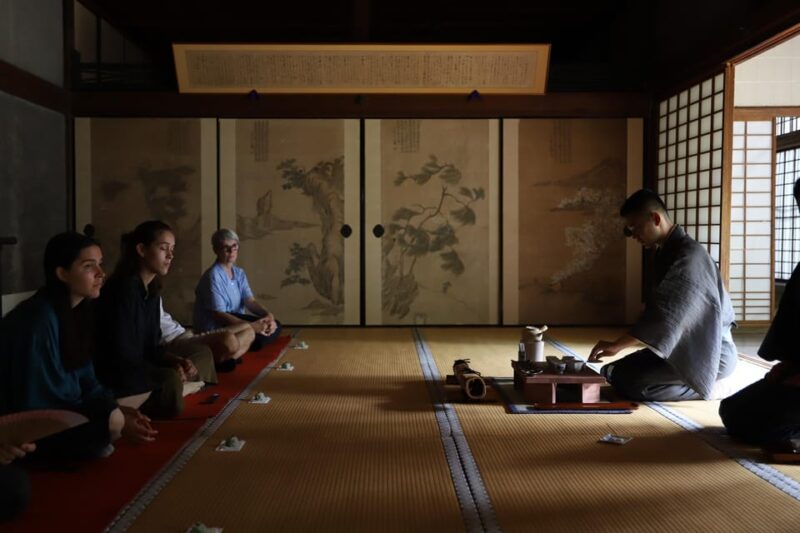
If you’re looking to learn about the serene world of Zen, the experience at Jojuuji Temple is truly enchanting. Guests can join a small group, limited to just ten participants, ensuring an intimate atmosphere.
For about 2.5 hours, they’ll engage in guided Zen meditation, learning from the experienced monk, Mr. Shizan Fujioka. The session includes two 20-minute zazen periods, allowing individuals to quiet their minds and connect with their spirits.
After meditation, participants enjoy a traditional Sen-cha-do tea ceremony, complete with seasonal sweets and expertly brewed tea. This unique blend of mindfulness and cultural tradition offers a perfect way to unwind and appreciate the beauty of Zen.
Plus, a full refund is available for cancellations made 24 hours in advance.
You can check availability for your dates here:Zen Meditation Details
As participants settle into the tranquil environment of Jojuuji Temple, they’ll find themselves guided by the expertise of Zen monk Mr. Shizan Fujioka.
He’ll lead them through two 20-minute zazen sessions, where they’ll experience the essence of Zen meditation. During these sessions, focusing on breath and posture becomes key to quieting the mind and unifying the spirit.
Afterward, participants can engage in a Q&A, allowing them to explore deeper into their practice and ask questions that arise during meditation.
This hands-on approach not only fosters understanding but also creates a supportive atmosphere for all. It’s a perfect opportunity to connect with Zen philosophy, making this experience both enlightening and enriching.
Participants leave feeling rejuvenated and centered.
You can also read our reviews of more tours and experiences in Kyoto.
Tea Ceremony Highlights
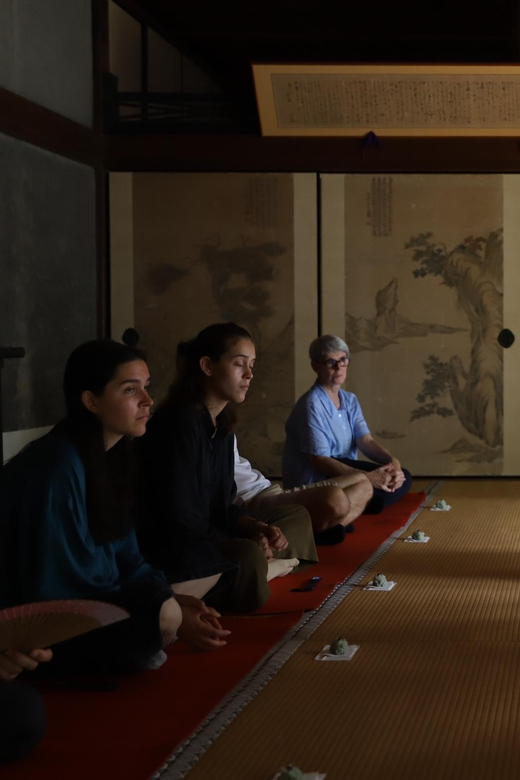
During the tea ceremony, participants enjoy the serene art of Sen-cha-do, guided by an experienced tea master.
This beautifully orchestrated ritual emphasizes mindfulness and appreciation of both tea and the moment. As attendees watch the delicate preparation, they learn about the cultural significance behind each step.
Here are some highlights of the experience:
- Seasonal Japanese sweets: Enjoy delightful confections that complement the tea’s flavor.
- Mindful sipping: Participants are encouraged to savor each sip, enhancing the sensory experience.
- Cultural storytelling: The tea master shares historical insights about the tradition.
- Community connection: Sharing this moment fosters a bond among participants, deepening their appreciation for Zen practices.
This is more than just tea; it’s an unforgettable journey into Japanese culture.
Jojuuji Temple History
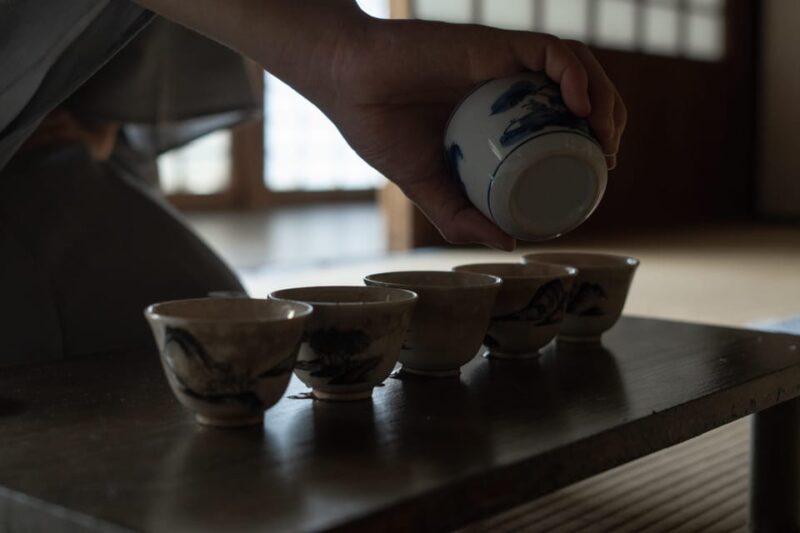
Jojuuji Temple boasts an impressive history that spans over 1,200 years, making it a significant landmark in Kyoto. Founded in 810, this temple originally served as a samurai residence before transforming into a temple of the Ōbaku sect of Zen Buddhism. Its sacred staircase, surrounded by serene nature, is recognized as a Tangible Cultural Property, providing visitors with a glimpse into its rich past.
| Year | Event |
|---|---|
| 810 | Jojuuji Temple founded |
| 1200 | Became a temple of the Ōbaku sect |
| 1600 | Restoration after civil wars |
| 1800 | Expansion and community growth |
| 2000+ | Preservation efforts continue |
Exploring this historical gem offers a deeper understanding of Kyoto’s cultural heritage.
Significance of Zen Buddhism
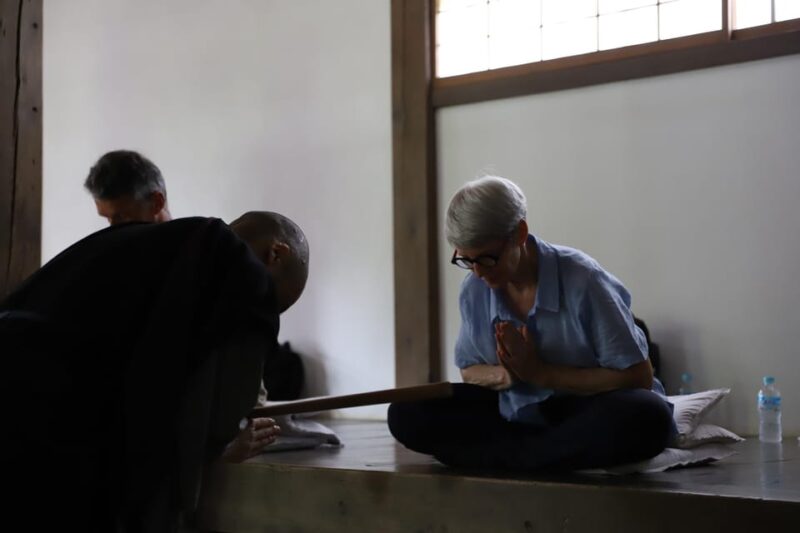
Zen Buddhism holds a profound significance in both spiritual practice and cultural identity, seamlessly intertwining mindfulness with everyday life. This practice encourages individuals to cultivate inner peace and awareness, enhancing their daily interactions.
- Promotes mental clarity and emotional resilience
- Fosters a deep appreciation for nature and simplicity
- Connects individuals to centuries-old traditions and teachings
- Inspires a sense of community and shared experience
Through meditation and tea ceremonies, participants engage with these principles, creating a rich tapestry of personal growth and cultural heritage.
By embracing Zen, one can discover practical methods to navigate life’s challenges while fostering a deeper connection to self and surroundings.
Ultimately, Zen Buddhism offers valuable tools for enhancing well-being and cultivating harmony.
More Great Tours NearbyInsights Into Sen-Cha-Do
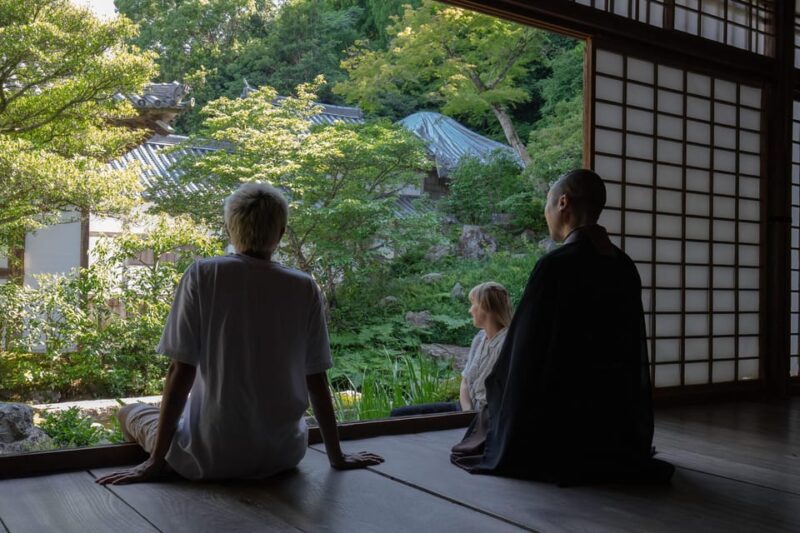
Engaging in Sen-cha-do offers a unique way to experience the principles of Zen Buddhism while enjoying a moment of tranquility.
This tea ceremony focuses on sencha, a type of green tea that complements Zen practice beautifully. Participants learn to appreciate the simplicity and mindfulness involved in each step—from the careful brewing to the graceful serving of tea.
It’s not just about drinking tea; it’s about immersing oneself in the moment, fostering a deeper connection to nature and self. Seasonal Japanese sweets often accompany the tea, enhancing the flavors and experience.
Practical Information for Visitors
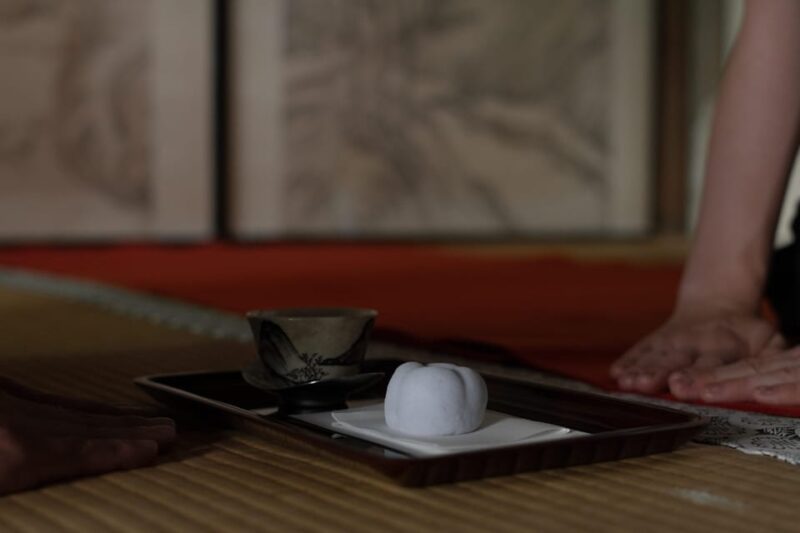
For those planning to visit the serene Jojuuji Temple for the Zen meditation and tea ceremony, it’s essential to keep a few practical tips in mind.
First, be sure to dress appropriately for the season; comfort matters during meditation.
Next, arrive early to soak in the tranquil surroundings and find your zen before the session starts.
Remember, the group size is limited to 10, so booking in advance is a must!
Finally, leave behind any sharp objects or weapons, as they’re not allowed on the temple grounds.
- Bring seasonal clothing for comfort.
- Arrive early to enjoy the peaceful atmosphere.
- Book in advance to secure your spot.
- Leave sharp objects at home.
Customer Experiences and Reviews
Visitors who’ve participated in the Zen meditation and tea ceremony at Jojuuji Temple rave about their experiences. They appreciate the serene environment and the knowledgeable guidance of Zen monk Mr. Shizan Fujioka. Many mention how the tea ceremony, featuring seasonal Japanese sweets, deepens their understanding of Zen culture.
Here’s what some guests are saying:
| Guest Name | Rating | Comment |
|---|---|---|
| Sarah | 5/5 | "The meditation was transformative!" |
| Tom | 5/5 | "A perfect blend of peace and culture." |
| Emily | 5/5 | "The tea was delightful, and the setting serene." |
| John | 5/5 | "Highly recommend this unique experience!" |
Frequently Asked Questions
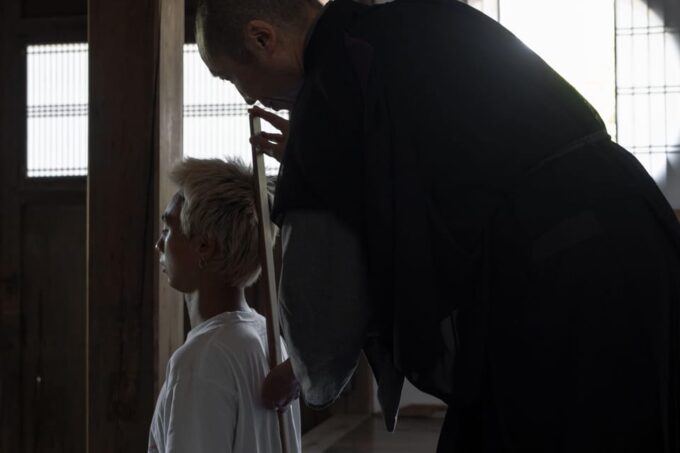
What Should I Wear for the Meditation and Tea Ceremony?
For the meditation and tea ceremony, she should wear comfortable, seasonal clothing that allows for ease of movement. It’s best to avoid loud patterns and opt for something simple to respect the serene environment.
Is There a Minimum Age Requirement for Participants?
There isn’t a strict minimum age requirement for participants. However, younger attendees might need supervision. It’s best to guarantee they can engage respectfully and quietly during the Zen meditation sessions and tea ceremony.
Can Dietary Restrictions Be Accommodated During the Tea Ceremony?
The tea ceremony’s organizers typically accommodate dietary restrictions, but it’s best to inform them in advance. They aim to guarantee everyone enjoys the experience while respecting cultural traditions, so communication is key for a delightful visit.
Is Photography Allowed During the Meditation and Tea Ceremony?
Photography isn’t allowed during the meditation and tea ceremony. Participants should focus on the experience, embracing the tranquility and cultural significance. It’s a chance to connect deeply without distractions from capturing images.
How Do I Get to Jojuuji Temple From Central Kyoto?
To reach Jojuuji Temple from central Kyoto, he can take bus number 50 or 59. Both routes offer scenic views, and it’s an easy, cultural journey that immerses him in local traditions along the way.
Recap
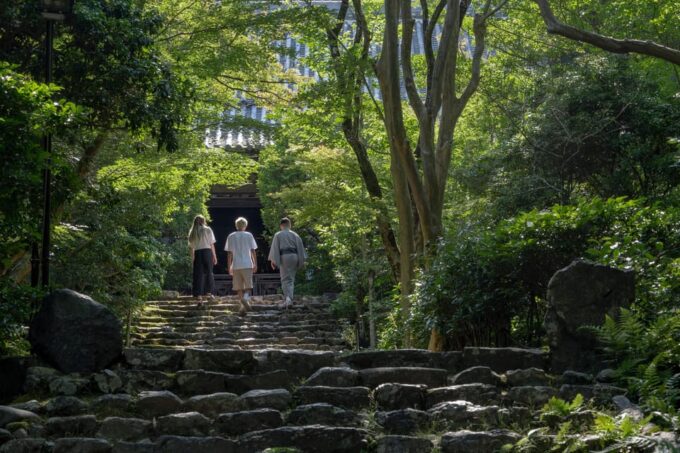
Whether you’re seeking inner peace or a deeper understanding of Japanese culture, the Zen meditation and tea ceremony at Jojuuji Temple offers a perfect escape. Guided by the wisdom of Mr. Shizan Fujioka, participants find tranquility through mindful practices and the beauty of Sen-cha-do. Don’t miss this chance to connect with nature and community in a serene setting. So, if you’re in Kyoto, make sure to carve out time for this enriching experience!
You can check availability for your dates here:More Tour Reviews in Kyoto
- Kyoto: Discover Every Bit of Ginkakuji Temple in 60 Minutes
- Private Full-Day Walking Tour of Kyoto
- Hidden Temples in Kyoto a Self-Guided Zen Tour
- 2 Hour Private Tour of Arashiyama Highlights
- Nara 9hr Tour Licensed Guide&Vehicle: Kyoto Pickup/Osaka Dropoff
- Kyoto: Half-Day Private Tour Gion Geisha Districts & Kiyomizu
Not for you? Here's more nearby things to do in Kyoto we have reviewed
- Hidden Kyoto- Countryside & Local Life – Private Car Tour
- Kyoto: Discover Every Bit of Ginkakuji Temple in 60 Minutes
- Private Full-Day Walking Tour of Kyoto
- Hidden Temples in Kyoto a Self-Guided Zen Tour
- 2 Hour Private Tour of Arashiyama Highlights
- One Way Bus From Kanazawa to Kyoto
- Nara 9hr Tour Licensed Guide&Vehicle: Kyoto Pickup/Osaka Dropoff
- Original Pizza Making Using Kyoto Vegetable at BNR Night Farm
- Kyoto 8 Hr Tour From Osaka: English Speaking Driver, No Guide
- Kyoto: Half-Day Private Tour Gion Geisha Districts & Kiyomizu
- Kyoto Sweets & Desserts Tour With a Local Foodie: Private & Custom
- Arashiyama Autumn Leaves & Sanzen-In Temple Tour From Osaka/Kyoto
